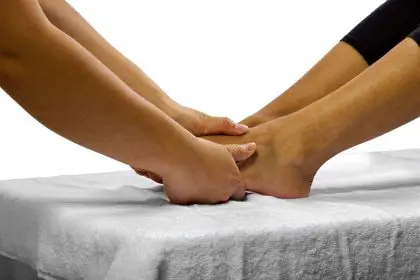The traditional handshake, long considered essential for professional networking, faces new scrutiny in today’s health-conscious and culturally diverse environment. As conferences bring together people from various backgrounds and regions, reconsidering this custom becomes increasingly important for both health and social reasons.
1. Health protection
Conferences create perfect conditions for spreading illnesses, with hundreds or thousands of attendees sharing space and making contact. Each handshake transfers countless bacteria and viruses between participants, potentially spreading everything from common colds to serious infections.
During flu seasons or global health events, this risk increases significantly. While hand sanitizers offer some protection, avoiding unnecessary physical contact provides the best defense against illness transmission. Conference attendance often requires travel and important presentations, making staying healthy particularly crucial.
2. Cultural awareness
Modern conferences attract global audiences with diverse cultural norms. Many cultures view handshaking as uncomfortable or inappropriate, particularly in cross-gender situations. Some Asian cultures prefer bowing, while many Middle Eastern attendees might choose hand-over-heart gestures.
Avoiding handshakes demonstrates cultural intelligence and respect for international colleagues. This awareness helps build stronger professional relationships and shows consideration for diverse cultural practices.
3. Social comfort
Not everyone feels comfortable with physical contact in professional settings. Many individuals experience social anxiety or simply prefer maintaining personal space. Forced handshakes can create unnecessary stress and discomfort for these attendees.
Alternative greetings allow everyone to interact comfortably while maintaining professional courtesy. This consideration helps create more inclusive networking environments where all participants can focus on meaningful connections rather than social pressure.
4. Pandemic awareness
Recent global health events have permanently changed social interaction norms. Many professionals now prefer avoiding unnecessary physical contact, even as restrictions ease. This cautiousness reflects ongoing awareness of public health responsibilities.
Choosing contact-free greetings shows respect for others’ health concerns and demonstrates social responsibility. This awareness particularly matters at large gatherings where infection risks increase.
5. Personal hygiene
Conference days often stretch long, filled with constant interactions, shared meals, and technology use. Frequent handshaking can leave hands feeling unsanitary, requiring repeated washing or sanitizing that interrupts networking flow.
Maintaining clean hands becomes easier without constant physical contact. This practicality allows attendees to focus on conversations and connections rather than hygiene maintenance.
6. Modern professionalism
Professional etiquette continues evolving, with many organizations embracing alternative greetings. Fist bumps, slight bows, or warm verbal greetings often replace traditional handshakes in contemporary business settings.
These modern alternatives can convey equal respect and friendliness while adapting to changing social norms. They also allow for more genuine interactions focused on communication rather than formality.
7. Leadership in change
Choosing alternative greetings provides opportunities to lead by example in professional settings. By explaining this choice positively, conference attendees can influence others to consider more inclusive and health-conscious networking practices.
This leadership role helps create more comfortable environments for everyone while maintaining professional standards. It shows awareness of evolving business practices and consideration for others’ preferences.
Alternative greetings
Several professional alternatives to handshakes have gained acceptance:
- Verbal greetings with eye contact
- Slight bow or head nod
- Hand over heart
- Friendly wave
- Elbow bump
- Namaste gesture
Implementation strategy
Avoiding handshakes requires tactful communication. Consider these approaches:
- Explain your preference early in interactions
- Use warm body language and genuine smiles
- Focus on meaningful conversation
- Maintain professional enthusiasm
- Show respect through attentive listening
Looking forward
As professional networking evolves, traditional practices continue adapting to modern needs. Choosing not to shake hands reflects awareness of health concerns, cultural sensitivity, and changing social norms rather than unfriendliness.
Success at conferences depends more on genuine interactions and valuable exchanges than on physical greetings. By focusing on meaningful connections while respecting health and personal boundaries, professionals can build stronger networks through more considerate interactions.
This story was created using AI technology.






